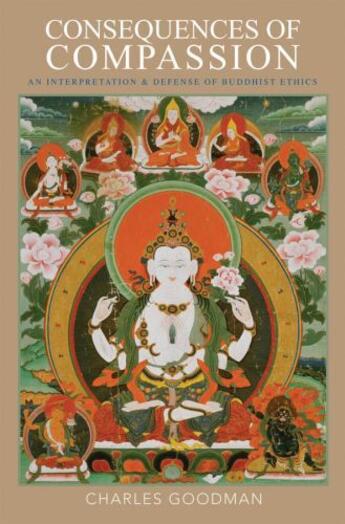Des idées de lecture pour ce début d'année !
Passionné(e) de lecture ? Inscrivez-vous
gratuitement ou connectez-vous pour rejoindre la
communauté et bénéficier de toutes les fonctionnalités du site !

To many Westerners, the most appealing teachings of the Buddhist tradition pertain to ethics. Many readers have drawn inspiration from Buddhism's emphasis on compassion, nonviolence, and tolerance, its concern for animals, and its models of virtue and self-cultivation. There has been, however, controversy and confusion about which Western ethical theories resemble Buddhist views and in what respects. In this book, Charles Goodman illuminates the relations between Buddhist concepts and Western ethical theories. Every version of Buddhist ethics, says Goodman, takes the welfare of sentient beings to be the only source of moral obligations. Buddhist ethics can thus be said to be based on compassion in the sense of a motivation to pursue the welfare of others. On this interpretation, the fundamental basis of the various forms of Buddhist ethics is the same as that of the welfarist members of the family of ethical theories that analytic philosophers call 'consequentialism.' Goodman uses this hypothesis to illuminate a variety of questions. He examines the three types of compassion practiced in Buddhism and argues for their implications for important issues in applied ethics, especially the justification of punishment and the question of equality.
Il n'y a pas encore de discussion sur ce livre
Soyez le premier à en lancer une !

Des idées de lecture pour ce début d'année !

Si certaines sont impressionnantes et effrayantes, d'autres sont drôles et rassurantes !

A gagner : la BD jeunesse adaptée du classique de Mary Shelley !

Caraïbes, 1492. "Ce sont ceux qui ont posé le pied sur ces terres qui ont amené la barbarie, la torture, la cruauté, la destruction des lieux, la mort..."